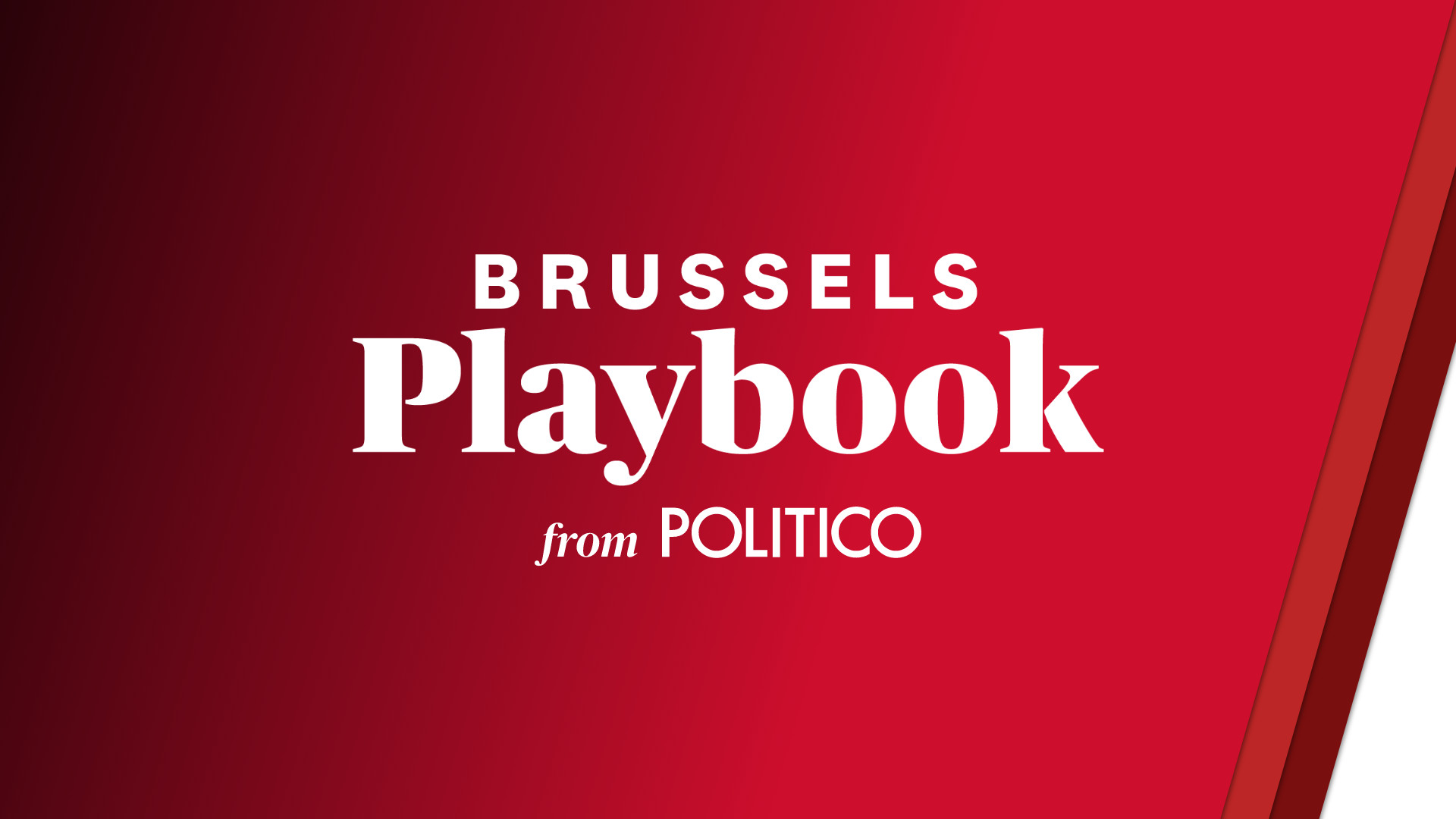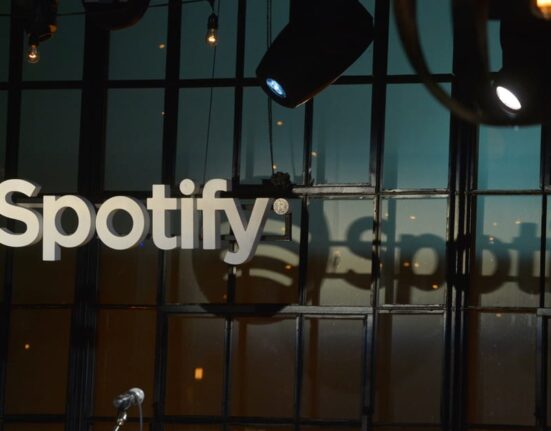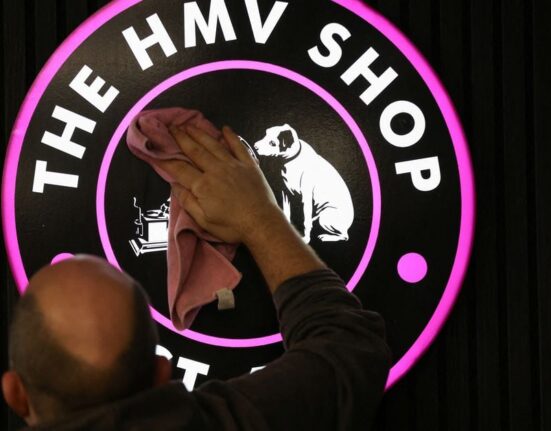Press play to listen to this article
Voiced by artificial intelligence.
ISRAEL-HAMAS TRUCE STARTS: A four-day pause in fighting between Israel and Hamas began this morning, with a group of 13 hostages held by the militant group due to be freed later this afternoon. Aid is also prepped to flow to Gaza — the World Food Program says it has around 1,300 tons of food supplies ready to go. The BBC has a live blog here.
Greetings from Switzerland, where your Playbook author traveled to escape the Sturm und Drang of EU politics. No such luck, though — our audience at the Lucerne Dialogue, where Suzanne Lynch and I were hosting a talk, was laser-focused on European affairs: Geert Wilders’ victory, the far right’s prospects across the Union and Swiss-EU relations.
HUNGARY-BRUSSELS STANDOFF
MICHEL SEEKS DEAL WITH ORBÁN AHEAD OF DECEMBER COUNCIL: Amid an escalating row between Brussels and Hungary over rule-of-law concerns, European Council President Charles Michel will travel to Budapest on Monday to try to strike a deal with Prime Minister Viktor Orbán ahead of a gathering of EU leaders next month, Council spokesperson Ecaterina Casinge confirmed late on Thursday.
Call and response: The trip comes days after Playbook reported that Orbán had threatened to derail the EU’s entire policy toward Ukraine in a letter to Michel, saying no decision on future aid or accession to the EU was possible unless leaders hold a “strategic discussion” on their approach to Kyiv.
**A message from Google: Artificial intelligence has the potential to unlock insights to help mitigate 5-10% of global greenhouse gas emissions by 2030, according to our new report with Boston Consulting Group. This can significantly bolster climate-related adaptation and resilience initiatives. Learn more here.**
Charm offensive: According to two EU officials who spoke to POLITICO’s Gregorio Sorgi and Barbara Moens, Michel aims to strike a deal with Orbán that would avoid an upcoming EU leaders’ summit, due to take place on December 14 and 15, turning into a fiasco.
Different this time: Orbán is no stranger to theatrical threats of holding up EU policy toward Ukraine and Russia. And so far, despite billions of euros in EU funds for Hungary still being held up in Brussels, he has always eventually allowed policy to move forward. But diplomats warn that this time may be different. Orbán seems to be emboldened by doubts about continuing U.S. support for Kyiv as well as a lack of clear progress on the battlefield.
Accession talks delayed: It now appears likely that, due to Orbán’s opposition, the EU will have to delay opening formal accession talks with Ukraine and Moldova until early next year, the diplomats warn.
Curious timing: In a sign of goodwill to Budapest, the EU executive on Thursday proposed the disbursement of €900 million to Hungary as part of a scheme to reduce energy dependence on Russia, Gregorio writes in to report.
The Berlaymont’s defense: Asked whether the release of the funds was designed to appease the Hungarian strongman, Commission spokesperson Eric Mamer told journalists Thursday that the EU executive was simply following the rules. The Commission said this pot of cash is not dependent on rule-of-law requirements and is meant to provide immediate energy support.
THE NEXT DUTCH GOVERNMENT
FEAR OF THE BLOND BEAST: Following Geert Wilders’ shock election victory on Wednesday, Dutch parties are gathering today to start power-sharing talks that will determine who becomes the next prime minister.
EU nightmare: Not only is Wilders a far-right ideologue who rails against Islam, he also wants to pull the Netherlands out of the EU and stop all support for Ukraine.
Time to talk: Despite his Party for Freedom winning the most seats in the election, Wilders would need to convince other parties to join him in a coalition if he wants to be PM. In this report, Eline Schaart lays out what to expect in coming days and weeks as Dutch power-brokers start grappling in earnest with the peroxide-blond provocateur in their midst.
First things first: Parties gathering today will appoint a so-called scout — a senior party operator who will look into possible coalition deals. That will kick off a negotiation process that could take months to complete. The last government of outgoing Prime Minister Mark Rutte took a record 299 days to form. This one could take longer.
Where the heavyweights stand: Frans Timmermans, whose Green-Labor alliance placed second in the election, has already ruled out any power-sharing arrangement with Wilders. “I suspect that we will end up in the opposition,” he said on Thursday. Pieter Haeck has the full write-up on Europe’s Mr. Green Deal post election.
Wiggle room: But other party chiefs are less clear-cut. Dilan Yeşilgöz, head of the liberal-conservative People’s Party for Freedom and Democracy (VVD) which placed third, has stopped short of ruling out a deal with Wilders but said that she could not see the Netherlands being ruled by someone who “does not bring together all Dutch people.”
No comment: Ditto for Pieter Omtzigt, the leader of the new center-right New Social Contract (NSC) party, which came in fourth. Having declared on election night that he was “available to govern,” he was tight-lipped on Thursday as to whom he might govern with.
Window of opportunity: That leaves open the possibility — however slim — of a coalition forming around the Party for Freedom, VVD and the NSC. It’s a long shot, but crazier things have happened. President Trump, anyone?
GETTING TO KNOW THE DUTCH TRUMP: Long before Donald Trump and Boris Johnson imposed their shocks of blond hair on the world, there was Geert Wilders — the original blond beast. Furiously provocative, the man whom Mark Rutte once dubbed a “political pyromaniac” has lived for years under heavy police protection following a litany of threats on his life. Having declared nearly 20 years ago that he wanted to become Dutch prime minister, he’s now closer to his goal than ever before. Dive in here for Eline’s profile of Wilders.
 |
RUSSIAN SANCTIONS
O’SULLIVAN HEADS TO CENTRAL ASIA: EU sanctions envoy David O’Sullivan heads to Kazakhstan and Uzbekistan next week as the Union seeks to clamp down on the circumvention of Russian sanctions by non-EU countries. It will be the second visit to the central Asian countries by the EU’s top sanctions envoy, who will be accompanied by officials from the U.S. and the U.K.
Hitting them where it hurts: “Our job is to try to minimize the circumvention of sanctions to make it harder for Russia to circumvent, slower for Russia to circumvent, and more expensive for Russia to circumvent,” O’Sullivan told POLITICO’s EU Confidential podcast. “We will probably never completely eliminate circumvention if we’re honest, but if we can make it harder, slower, and more expensive, this is already an achievement.”
Chasing the trail: The long-time EU official, who took up his role as EU sanctions czar earlier this year, is keeping mum on the 12th Russian sanctions package winding its way through the Council system, but said significant progress has been made when it comes to clamping down on the re-export of components that end up in Moscow’s missiles and artillery.
Feeding the military industrial complex: “There is a list of some 45 tariff lines … which Ukrainian colleagues have found in the remains of Russian missiles, drones, artillery shells, and so forth,” O’Sullivan told Suzanne Lynch. “These are goods which largely would have an innocent civilian application in normal circumstances, but which we are convinced, once they find their way to Russia, go directly into the military industrial complex and into weapons.” A particular focus is encouraging Turkey to ban the export of these products to Russia, he said.
Slow puncture: O’Sullivan hit back at the argument that sanctions have failed to hurt the Russian economy significantly. “Russia is struggling to find the technology it needs for military kit — they’ve turned to Iran and to North Korea. The revenue of the Russian government is down — they traditionally ran a government surplus; they’re currently in a serious deficit. And if you look at the performance of the Russian economy generally, it’s very poor,” he said.
NEW COMMISSION SANCTION EFFORT: Russians who seized parts of European companies after Vladimir Putin’s invasion would be sanctioned under proposals put forward by the Commission. Until now, the EU has not been able to penalize people who profited from the seizures. But that will change if the Union’s governments approve the Commission’s latest sanctions plans contained in a document seen by POLITICO. Gregorio Sorgi has the details.
AROUND PARLIAMENT
MEPS MISUSING ASSISTANTS’ FUNDS: Almost 140 MEPs have misused money they received to pay assistants, a new report by Follow the Money shows. According to a letter from the Parliament obtained by Follow the Money and Die Welt, lawmakers could dodge investigation if they simply paid the money back.
The data: A total of 108 EU lawmakers paid back more than €2 million between 2019 and 2022, though the Parliament is still waiting to recover another €1.44 million from 31 MEPs who had misused funds. The Parliament has refused to say to what extent it has cracked down on this — but it has to report any potential criminal conduct to the European Public Prosecutor’s Office “without undue delay.” During the first two years of EPPO’s activity in 2021 and 2022, only one potential crime was reported. Read the full report here.
AMNESTY WARS: Catalan separatist MEPs Carles Puigdemont and Toni Comín are taking aim at a Parliament official they say violated the institution’s neutrality by speaking out against Spain’s controversial Catalan amnesty bill, Aitor Hernández-Morales reports.
Impartiality rules: In a letter to Parliament President Roberta Metsola and Secretary-General Alessandro Chiocchetti, Puigdemont and Comín accuse the Parliament’s Acting Director at the Directorate for Relations with National Parliaments Jesús Gómez Martínez of breaking rules that say officials must act “objectively and impartially” by leading a protest against the amnesty law in Brussels and by signing an open letter criticizing the draft legislation.
The Spain show: Spanish tensions have been spilling into the EU arena for the past two weeks, with different factions sniping at one another in Brussels and Strasbourg. On Wednesday the country’s conservative MEPs succeeded in holding a debate on the purported threat to the rule of law in Spain during the Parliament’s plenary session. Spanish EPP and Socialist MEPs spent nearly two hours flinging insults at one another in a nearly empty hemicycle, with MEPs from every other member country appearing rather bored by it all, Aitor reports.
GERMAN GREEN DROPS EU ELECTION BID: German Green MEP Malte Gallée was on Thursday removed from the list for the EU election, with his party citing “personal reasons,” Eddy Wax reports. Today the German Greens will vote at their party conference to decide the first 20 candidates on their EU election list, which Terry Reintke is widely expected to lead.
Spitz no more: The 30-year-old Gallée’s social media used to show he was running as the lead candidate for the Greens in Bavaria, but was removed Thursday. A spokesperson for the German Greens told Playbook: “Malte has decided to not run for the next European Parliament, for personal reasons. We respect this decision.”
**POLITICO’s Suzanne Lynch is going to COP28 – and so are you. POLITICO’s Global Playbook is our latest newsletter and your VIP pass to the event that will shape international climate policy, with reverberations across both continents and sectors alike. Never miss a beat from COP28 – sign up for Global Playbook here.**
IN OTHER NEWS
CLASHES ERUPT AFTER DUBLIN STABBINGS: Riots broke out in central Dublin late Thursday with far-right protesters setting fire to police cars and property following the arrest of a man suspected of having stabbed five people, including a 5-year-old girl who was severely injured. While Irish police earlier ruled out a terrorist motive, Garda Commissioner Drew Harris said the investigation into the stabbings had to “examine any and all possible motivations.” Commenting on the violence late on Thursday, Harris said it was caused by a “hooligan faction driven by far-right ideology.” Read Paul Dallison’s report here.
FINLAND ACCUSES RUSSIA OF WEAPONIZING MIGRANTS: Finland’s foreign minister said his country is prepared to close all border crossings with Russia if the Kremlin continues allowing migrants to cross them. “We have taken this step by step in order to signal to Russia that we can’t accept this hybrid operation taking place,” Elina Valtonen told the FT. Finland has now closed all but one of its border crossings with Russia.
NO OSCE DEAL IN VIENNA: A deal backed by Moscow to install Malta as the next chair of the Vienna-based Organization for Security and Cooperation in Europe, which conducts election-monitoring, among other duties, was still up in the air Thursday evening, according to two diplomats. The OSCE has been at a standstill since 2021, when its last budget was agreed. Russia refuses to approve Estonia, supported by the EU, taking over as chair in 2024, Jacopo Barigazzi and Hans von der Burchard report.
GREEK GENTRIFICATION: In a northern part of Greece’s capital, the neighborhood of Exarcheia — historical center of radical left-wing politics, adored in equal measure by intellectual activists and scruffy late-night revelers — is under attack. Gentrification threatens to bring an end to a scene of alternative culture and protest that’s had a place in people’s hearts for decades, writes Nektaria Stamouli.
ART OF THE DEAL: Europe should offer Donald Trump a deal on Ukraine that he can’t refuse, should he be returned to the White House, says Joseph de Weck, Europe director at Greenmantle, in an opinion article for POLITICO. “Trump doesn’t care for Europe’s security order,” he writes, but “he could, however, be tempted into it — if it seems profitable.”
And speaking of Trump: Is Britain ready for his return? That’s the question on this week’s Westminster Insider podcast.
HOW TO DEAL WITH YOUR ENEMIES: In this week’s Declassified humor column, Paul Dallison explores some of the best ways to get back at your enemies, from nasty emails to nasty name-calling.
FILM CLUB — NAPOLÉON RETURNS TO WATERLOO: On a quiet Wednesday evening, a small crowd of history enthusiasts — accompanied by my colleague Nicolas Camut — showed up at the aptly named Wellington Cinema for the premiere of Ridley Scott’s much-anticipated blockbuster, “Napoléon.” Lasting well over two hours, the movie, complete with historical inaccuracies that have sparked the ire of French movie critics, is well worth a watch. But if you’re among the French emperor’s aficionados, you might be disappointed. Scott’s Napoléon, played by a brilliant Joaquin Phoenix, is a burlesque ruffian and a pathetic husband, portrayed as a comically stubborn man who throws tantrums during diplomatic meetings, and does not listen to his generals — for better or worse. Full review by Nicolas here.
AGENDA
— EU-Canada summit continues in St John’s, Canada. Commission President Ursula von der Leyen and Council President Charles Michel represent the EU; joint press conference together with Canadian Prime Minister Justin Trudeau at 4:15 p.m. Watch.
— Internal Market Commissioner Thierry Breton is in Marseille, France, for a visit devoted to artificial intelligence, competitiveness and defense.
— Informal ministerial meeting on equality in Pamplona, Spain. Arrivals and doorsteps at 8:30 a.m. … press conference at 11 a.m. Agenda. Watch.
— Education, Youth, Culture and Sports Council. Arrivals and doorsteps at 9 a.m. … press conference on culture by Innovation Commissioner Iliana Ivanova and Spanish Culture Minister Ernest Urtasun at 1:20 p.m. … press conference on sport by Iliana Ivanova and Spanish State Secretary for Sports Victor Francos Díaz at 5:40 p.m. Watch.
— European Parliament President Roberta Metsola meets Lebanese Foreign Minister Abdallah Bou Habib at 9:30 a.m.
— Commission Executive Vice President Valdis Dombrovskis participates in the BusinessEurope Council of Presidents … meets Latvian Culture Minister Agnese Logina … attends the EU-India Trade and Technology Council meeting via video conference.
— Economy Commissioner Paolo Gentiloni is in Norway; meets Finance Minister Trygve Slagsvold Vedum … meets Trade and Industry Minister Jan Christian Vestre … delivers opening remarks at the InvestEU Roadshow.
— European Economic and Social Committee’s Connecting EU seminar on “European elections 2024: why vote?” continues in Bratislava. Agenda. Watch.
BRUSSELS CORNER
MAASTRICHT SUES FLANDERS: The Dutch city of Maastricht plans to sue Flanders over its failure to build a tram connection from Maastricht to the neighboring Belgian city of Hasselt. Dutch authorities invested nearly €20 million in the project dating back to 2004, but Flanders decided to scrap it last year. The region is obliged to pay back the entire sum invested by the Netherlands, as stated by the contract, but has failed to do so. According to the office of Flemish Mobility Minister Lydia Peeters, Flanders has not yet received an official communication on the matter, and will considers next steps once it does.
INTEGRATING NEW RESIDENTS: Flanders has launched a new platform to help new residents integrate in the region. The website provides information about events, helps newcomers meet new people and learn Dutch.
NATIONAL DEMONSTRATION AGAINST VIOLENCE AGAINST WOMEN: Mirabal Belgium, a platform uniting about 100 civil society organizations, has called for a nationwide demonstration on Sunday to demand an end to all forms of violence against women. Around 5,000 people are expected to attend the rally starting at Brussels-Central station at 2 p.m., with a community village set up at Mont des Arts from noon onwards.
WHAT TO DO THIS WEEKEND: This weekend mainly brings Christmas spirit in the form of the start of the markets in Brussels, but for the grinches out there, there’s lots more you can enjoy …
NOCTURNES OF THE SABLON: The antique quarter of Sablon has late-night events running until Sunday, featuring various exhibitions, concerts and tastings. Program.
BRUSSELS INTERNATIONAL GUITAR FESTIVAL: A festival for guitar fans in Brussels offers a rich program with artists from all over the world. The festival kicks off today and lasts until Tuesday.
WALLONIA BOOK FAIR: The Wallonia Book Fair will take place in Mons this weekend, with around 20,000 visitors expected. The fair is devoted to French-language literature and will also include literary lectures and an award ceremony on Sunday.
BRIGITTINES CHAPEL ANNIVERSARY: Les Brigittines, a popular cultural venue, celebrates its 360th anniversary with a series of special events. There will be shows and concerts, as well as walking tours.
FESTIVE CHEER: The official opening of Winter Wonders takes place today from 6 p.m. until 10 p.m. with the lighting of the Christmas tree at Grand Place, a special show by the 11 First Nations of Quebec and a sound and light show. Here is a full list of markets and activities. The lights all around the city have been on since Wednesday, and will be lit until December 31.
NATURAL WINES FESTIVAL: Discussions, concerts and tastings focusing on the future of wine and other fermented beverages will take place on Sunday and Monday at LaVallée in Molenbeek.
FOOD REVIEW: POLITICO’s Laura Hülsemann tried some Berlin-inspired artisan döner at Panam Kebab. Read the review here.
BIRTHDAYS: MEP Jiří Pospíšil; Former MEP Philippe Loiseau; Véronique De Waele of BASF; Mihhail Kõlvart, mayor of Tallinn; DPA’s Helen Maguire; POLITICO’s Laura Zeffiri.
CELEBRATING SATURDAY: MEP Elżbieta Łukacijewska; International Rescue Committee’s Harlem Désir; MO* magazine’s Jago Kosolosky; Mujtaba Rahman, Europe director of Eurasia Group; International Day of the Elimination of Violence Against Women. Bosnia and Herzegovina Statehood Day.
CELEBRATING SUNDAY: MEPs Andrzej Halicki and Annika Bruna; Former MEPs Marian Harkin, Claude Turmes, Isabelle Thomas; Renew Europe’s Edel Rettman-Crosse; U.S. Ambassador to Italy and San Marino Jack Markell; Journalist Matt Frei; Axel Springer’s Gabe Brotman; American diplomat Dennis Ross; Aela Callan, co-founder of Head Set; European Commission’s Katie Owens.
THANKS to Playbook reporter Ketrin Jochecová, editor Jack Lahart and producer Seb Starcevic.
**A message from Google: Creating a sustainable future requires collective action from policymakers, government officials, city planners and business leaders. Policymakers in particular have a central role to play both in harnessing the potential of AI for climate action and in ensuring its sustainable and equitable use. Policymakers can make a difference in accelerating three outcomes: 1. Enabling AI for climate progress by encouraging data sharing, ensuring affordable technology access, building awareness, and investing in talent. 2. Accelerating the deployment of AI for climate by defining public and private sector priorities, delivering on public sector use cases, and encouraging private sector action. 3. Promoting environmentally and socially responsible deployment of AI. Learn more here about how we can responsibly develop more sustainable tools and products that harness the power of AI to lead to the climate progress we need.**
SUBSCRIBE to the POLITICO newsletter family: Brussels Playbook | London Playbook | London Playbook PM | Playbook Paris | POLITICO Confidential | Sunday Crunch | EU Influence | London Influence | Digital Bridge | China Watcher | Berlin Bulletin | D.C. Playbook | D.C. Influence | All our POLITICO Pro policy morning newsletters







